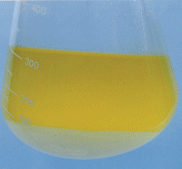- 800-381-2065
- [email protected]
- 9627 Southwest Freeway, Houston, TX 77074
- Monday – Friday: 8 AM – 4 PM (Central)
Current Turnaround Times
Standard Service – 3-4 Business Days
Expedited Service – 1 Business Day
Last Updated 2/9/2026 at 11:31AM
Standard Service – 3-4 Business Days
Expedited Service – 1 Business Day
Last Updated 2/9/2026 at 11:31AM

Ethanol-blended gasoline has become the standard in modern fuel, but it comes with hidden risks for your engine. While ethanol helps reduce emissions, it also absorbs moisture from the air, leading to phase separation—where water and ethanol separate from gasoline, causing corrosion, clogged fuel injectors, and engine failure. This issue is particularly common in marine engines, classic cars, motorcycles, and small equipment. Understanding how ethanol affects your fuel system can help prevent costly repairs.
More In This Section
Ethanol is a biofuel made from fermented and distilled plant materials such as corn, sugarcane, wheat, and other grains. It is commonly blended with gasoline to reduce emissions and reliance on fossil fuels. While ethanol has environmental benefits, it also has hygroscopic properties—meaning it attracts and absorbs moisture from the air. This can lead to serious fuel system problems if not properly managed.
Ethanol’s ability to absorb water can lead to phase separation, where water and ethanol separate from gasoline. This process happens when the water content in a fuel tank reaches just 0.35%, leaving behind:
When this contaminated fuel enters the engine, it can cause clogged fuel injectors, poor performance, and even engine failure. These problems are especially common in boats, jet skis, motorcycles, ATVs, lawn equipment, and classic cars.

To minimize ethanol-related issues, consider the following:
Ethanol fuel can cause significant damage if left unchecked, but with the right precautions and regular maintenance, you can keep your engine running smoothly. Schedule a fuel injector cleaning today to protect your vehicle, boat, or equipment from ethanol-related problems.

Maintenance such as injector cleaning and flow testing should be done on a regular.
Using gasoline as a fleet operator or for your family car, classic car, boat, personal watercraft, motorcycle, ATV, snowmobile, RV, lawnmower, weed-whacker, generator, or any of the thousands of other types of equipment that use gasoline engines, you are being affected by Bio-Ethanol in your fuel.